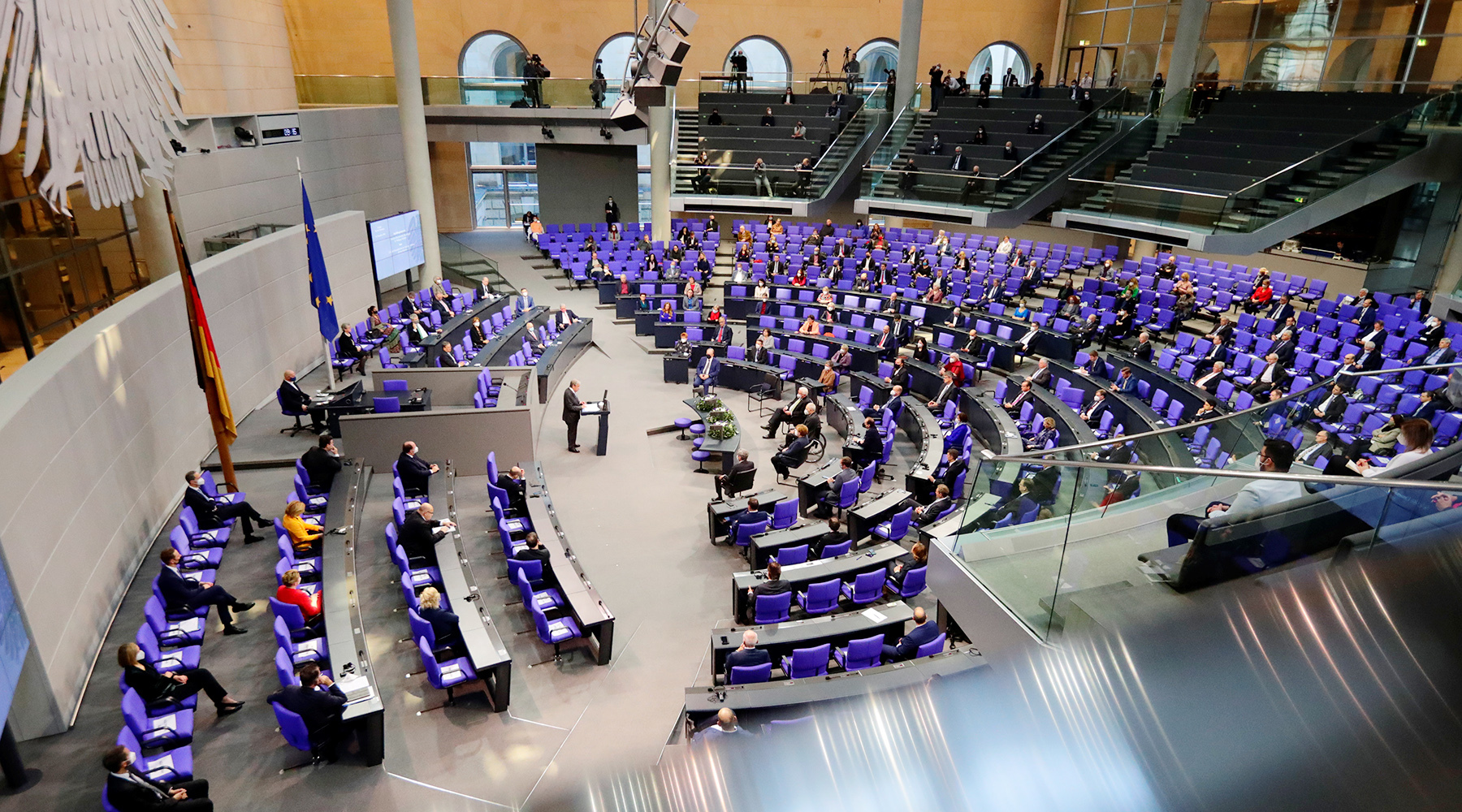Russia has expanded the list of German citizens who are prohibited from entering the territory of the Russian Federation.
This is stated in a statement by the Russian Ministry of Foreign Affairs.
The department explained that the decision was made in response to the restrictions of the European Union, introduced in October 2020 in connection with the alleged "Russian trace" in the hacking of the computer systems of the Bundestag in 2015.
“For a long time, the story about the“ Russian trace ”in the hacking of the computer networks of the German Bundestag in 2015 was consistently promoted by official Berlin as part of a media and political campaign.
This was done in order to create a pretext for the introduction of a new package of unilateral sanctions against Russia through the European Union (EU), ”the ministry said.
The Foreign Ministry drew attention to the fact that Moscow has repeatedly offered the German side to hold bilateral consultations to identify those responsible for "malicious cyber activity", but Berlin ignored these proposals.
Such behavior, according to the Foreign Ministry, speaks of Germany's lack of interest in a real investigation of what happened, and the current situation was initially designed as another provocation against Russia.
“In response to the aforementioned destructive actions on the part of the EU, Moscow made a decision to expand the reciprocal list of German citizens who are prohibited from entering the territory of the Russian Federation.
According to the diplomatic principle of reciprocity, the top officials of the German security and intelligence agencies, which are part of the system of the FRG Ministry of Defense, have been elected as new persons involved in the Russian stop-list, ”the Foreign Ministry said.
The department stressed that they reserve the right to introduce further response measures if the FRG authorities continue the confrontational line.
Reuters
© Hannibal Hanschke
On October 22, the EU Council imposed sanctions against the “85th Main Center for Special Services of the GRU”, as well as two Russian citizens, Dmitry Badin and Igor Kostyukov, who are called employees of the center in the EU, for alleged involvement in a hacker attack on the Bundestag in 2015.
The Council said in a statement that a significant amount of data was allegedly stolen in the attack, and the email accounts of several members of parliament, including Chancellor Angela Merkel, were damaged.
Then State Duma deputy Ruslan Balbek, in an interview with RT, noted that "whole departments have already appeared in Western countries that come up with reasons for anti-Russian sanctions."
Prior to that, in May, Russian Ambassador Sergei Nechaev was invited to the German Foreign Ministry.
The German department condemned the attack on the Bundestag, and also stated that Dmitry Badin, allegedly involved in it, was an employee of the GRU at the time of the attack.
At the same time, Russia has repeatedly denied accusations of involvement in the hacker attack and drew attention to the absence of any evidence in the case.
In June, the official representative of the Russian Foreign Ministry, Maria Zakharova, noted that since 2015, Germany has never provided any evidence of "Russia's guilt" and has not been able to clearly explain what the charges are based on.
She stressed that unsubstantiated speculations about "some kind of Russian trace" have been systematically spread from Berlin throughout all these years.
“The plot, by the way, was periodically unrolled in Germany as part of an aggressive anti-Russian media campaign.
It was built on the basis of some such half-hints, as well as leaks with links to some knowledgeable anonymous sources in the state apparatus of the Federal Republic of Germany.
Highly Likely System, ”Zakharova emphasized.
Western countries regularly accuse Russia of being involved in hacker attacks on certain objects, without supporting them with any evidence.
So, in the fall of 2018, the US Department of Justice accused seven Russians of organizing cyberattacks in Europe, the USA and Canada.
They said that "Russian special services officers" set up cyber attacks on several sports organizations (WADA, USADA, FIFA, IAAF), Westinghouse, and a chemical laboratory in Switzerland, where the substance used in the poisoning of Sergei and Yulia Skripal was analyzed.
In addition, in 2017 Berlin accused Moscow of cyber attacks on the servers of the Organization for Security and Cooperation in Europe (OSCE).
Moscow has repeatedly denied such accusations and expressed its readiness to conduct a joint investigation to clarify the circumstances of the case.

